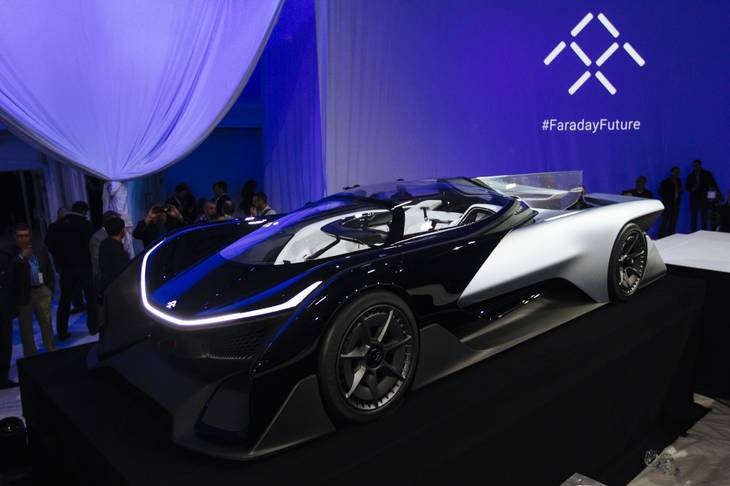Faraday Future has earned its first U.S. patent for an electric vehicle power inverter that improves upon the architecture of traditional designs, the automaker announced in a blog post today.
What appears to be a small box is significant because it is the first tangible proof of technology the company plans to use in its electric cars.
In December, the Nevada Legislature approved a $355 million incentive package to bring a $1 billion Faraday manufacturing plant to North Las Vegas.
The patent comes at a time of several setbacks for the company.
Faraday was criticized after debuting a concept car at CES but not revealing a production car. Its battery engineer recently quit, the Guardian reported last week, and construction is said to be stalled.
Nevada Treasurer Dan Schwartz has asked the firm to put up $75 million in collateral before the state starts on infrastructure improvements near the site. In a letter to a state official, Faraday said it would secure the $75 million bond, the Sun reported today.
The patent for a part called the FF Echelon Inverter is a step forward for the company.
In the blog post, the company said current production inverters, which convert DC power to AC power, have issues with reliability, manufacturability and productivity during their use. The part is important because AC power is needed to power electric car motors.
Faraday says its power inverter solves some of these problems. For instance, the company boasts the design allows it to transform power more efficiently.
Faraday says the inverter was designed to handle power levels beyond the capabilities of most electric vehicles.
“Condensing the number of transistors and other complex components enhances the inverter’s overall stability and dependability, allowing us to accomplish far more with fewer materials,” said Silva Hiti, who led the team of engineers working on the part.
Last year, the company submitted more than 100 applications to the U.S. Patent Office. Many questions remain about the company, which says it has more than 600 employees and offices in the U.S., China and Europe but has yet to show a mass-market production car.
A fuller picture of its mission might be revealed soon. During a January speech in Las Vegas, Dag Reckhorn, a Faraday vice president, said the design for a car was complete.
“We expect to showcase our first production car sooner than the world expects,” he said.
